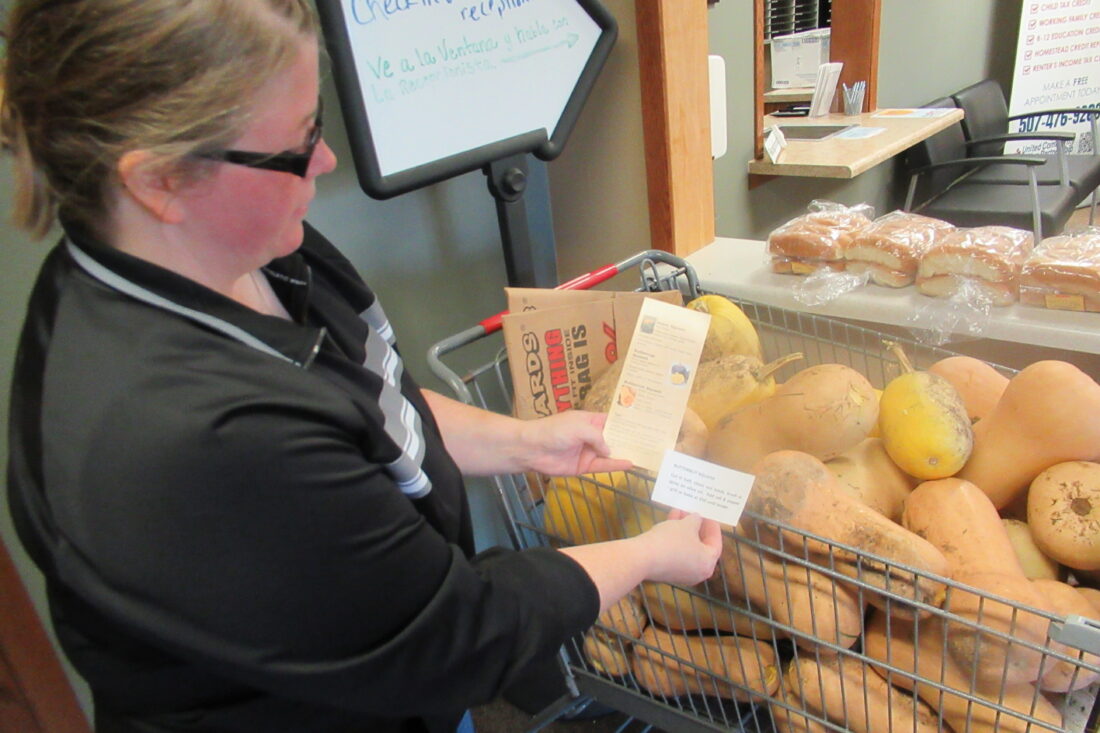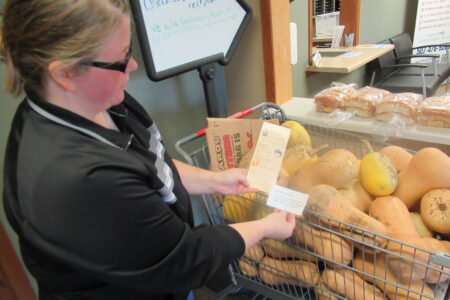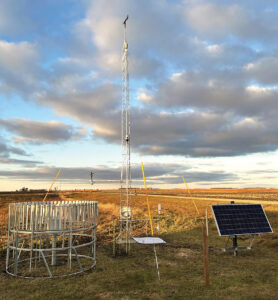Shutdown leaves uncertainties for SNAP
If federal shutdown continues, area residents could lose November food assistance

Stacy Gackstetter shared cooking recommendations for a bumper crop of squash the Kitchen Table Food Shelf and United Community Action Partnership received this week. The food shelf is seeing an increase in need, at the same time that a federal government shutdown is putting other food assistance like SNAP at risk.
MARSHALL – More than 2,700 households in southwest Minnesota might not get SNAP assistance next month due to the federal government shutdown, according to data from Southwest Health and Human Services.
This week, SWHHS was notified by the Department of Children, Families and Youth that there would not be sufficient funding for the Supplemental Nutrition Assistance Program (SNAP) in November, said SWHHS Director Stacey Timm.
Timm said people can still apply for SNAP benefits. However, “If the government shutdown continues, those benefits are at risk starting in November,” she said.
SWHHS, which serves a six-county area in southwest Minnesota, has a total of 2,760 active cases for SNAP benefits. Each of those cases represents a household, so the number of individual people affected by benefits is bigger, Timm said. There are 1,250 households receiving SNAP benefits in Lyon County alone, SWHHS data said.
“It’s elderly people, it’s kids. It’s across the spectrum,” Timm said of the people who would be affected by the loss of SNAP benefits.
In addition, SWHHS has a total of 242 households receiving help from the Minnesota Family Investment Program. MFIP provides cash and food assistance, and employment counseling, for families with children. Timm said MFIP tends to provide more of short-term assistance for families.
The uncertainty over SNAP benefits also comes at a time when other resources for food assistance are seeing increased need. The Kitchen Table Food Shelf in Marshall has seen 30 to 40 new families visit in each of the past couple of months, estimated food shelf coordinator Stacy Gackstetter.
Timm said SWHHS is trying to stay on top of changing news regarding SNAP funding, and how it could affect area residents.
“It’s kind of moving parts for us,” Timm said. SWHHS already had to deal with some uncertainty earlier this week, over whether or not they could accept new applications for SNAP benefits. On Thursday, she said, they learned SNAP applications can be processed through the end of the month.
“We can keep taking applications, and they will be processed for October,” Timm said.
In the midst of the confusion, the positive thing was that SWHHS was already caught up with SNAP applications, so staff did not have to scramble to make sure people received benefits, Timm said.
“I’m proud of our staff for that,” she said.
Timm said area residents applying for assistance should still do so. They can still receive SNAP benefits for October. Even after the end of the month, their application process could still pick up again when federal government operations resume.
One big uncertainty ahead is what will happen if the shutdown keeps going. SWHHS was talking about what resources might be available for people if there are no November SNAP benefits, she said.
“I think we’re exploring that now, to see where we can help,” she said. Timm said local food shelves “do phenomenal work in our community.”
At the same time, area food shelves are already seeing increased need. Nikki Knobloch, food and nutrition manager at United Community Action Partnership, said the Kitchen Table Food Shelf is getting visits from an average of 454 households per month, compared to last year’s average of 416 households per month. At the Kitchen Table location in Tracy, an average of 80 households visit per month.
Knobloch said the food shelf is still accepting donations, and encouraged people to support food shelves. Gackstetter said this week that area gardeners had been helping to supply seasonal vegetables, and food shelf staff also try to offer recipes and tips on preparing the produce.
Monetary donations are also accepted, and can sometimes go farther than food donations, Knobloch said.
Timm said she thought SWHHS might start getting more questions about SNAP next week, when the Department of Youth, Family and Children starts notifying people with SNAP benefits about the affects of the shutdown. If area residents have questions about SNAP benefits, Timm encouraged them to contact SWHHS. In the meantime, she said, “Our best hope is the government will reopen.”



